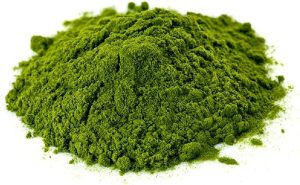
1. Calcium
1.1 Functions of Calcium:
Calcium is a crucial mineral that plays several vital roles in the human body. Some of its primary functions include:
- Bone and Teeth Formation: About 99% of the body’s calcium is stored in the bones and teeth, providing strength and structure.
- Blood Clotting: Calcium is essential for the blood clotting process, preventing excessive bleeding when there is an injury.
- Muscle Function: Calcium is involved in muscle contraction and relaxation. It helps transmit nerve signals and activates the proteins that are responsible for muscle contractions.
- Cell Signaling: Calcium is a key signaling molecule in various cellular processes, including the release of neurotransmitters and hormone secretion.
- Enzyme Activation: Calcium is involved in the activation of several enzymes, influencing various biochemical reactions in the body.
1.2 Sources of Calcium:
Dietary intake is the primary source of calcium. Good dietary sources include:
- Dairy Products: Milk, cheese, and yogurt are rich in calcium.
- Leafy Greens: Kale, broccoli, and bok choy are examples of vegetables that contain significant amounts of calcium.
- Fish: Some types of fish, such as salmon and sardines, are good sources of calcium.
- Fortified Foods: Certain foods, like fortified cereals and plant-based milk alternatives, may be enriched with calcium.
- Nuts and Seeds: Almonds and chia seeds are examples of calcium-rich nuts and seeds.
1.3 Deficiency of Calcium:
A deficiency in calcium can lead to various health problems, including:
- Osteoporosis: Insufficient calcium intake over the long term can result in weak and brittle bones, increasing the risk of fractures.
- Hypocalcemia: Low levels of calcium in the blood can lead to symptoms such as muscle cramps, spasms, and numbness.
- Poor Blood Clotting: Calcium deficiency can impair the blood clotting process, leading to increased bleeding.
1.4 Supplementation of Calcium:
Calcium supplementation may be recommended for individuals who have difficulty meeting their calcium needs through dietary sources alone. Common forms of calcium supplements include calcium carbonate and calcium citrate. It’s important to consult with a healthcare professional before starting any supplementation to determine the appropriate dosage and form.
1.5 Toxicity of Calcium:
While calcium is essential for health, excessive intake can lead to hypercalcemia, a condition characterized by high levels of calcium in the blood. Symptoms of calcium toxicity may include:
- Constipation
- Kidney Stones
- Excessive Urination
- Nausea and Vomiting
It’s essential not to exceed the recommended daily intake of calcium, and individuals with certain medical conditions should consult with a healthcare professional before taking calcium supplements to avoid potential toxicity.
For more detailed information on Calcium, please click here
2. Copper
1.1 Functions of Copper:
Copper is an essential trace mineral that plays various important roles in the human body. Some of its key functions include:
- Enzyme Activation: Copper is a cofactor for several enzymes involved in critical physiological processes, including energy production, iron metabolism, and antioxidant defense.
- Iron Metabolism: Copper is necessary for the absorption, transport, and utilization of iron in the body.
- Connective Tissue Formation: Copper is involved in the synthesis of collagen and elastin, which are essential for the formation and maintenance of connective tissues, such as skin, blood vessels, and bones.
- Neurotransmitter Synthesis: Copper is required for the synthesis of neurotransmitters like norepinephrine, which play a role in nerve signaling.
1.2 Sources of Copper:
Dietary sources are the primary means of obtaining copper. Good sources include:
- Organ Meats: Liver and kidney are rich in copper.
- Seafood: Shellfish, particularly oysters, crab, and lobster, are good sources.
- Nuts and Seeds: Cashews, sunflower seeds, and almonds contain copper.
- Whole Grains: Foods like wheat bran, whole wheat, and oats contain copper.
- Legumes: Lentils and beans are sources of copper.
- Chocolate: Dark chocolate contains copper in small amounts.
1.3 Deficiency of Copper:
Copper deficiency is rare but can lead to various health problems, including:
- Anemia: Copper is involved in iron metabolism, and its deficiency can lead to anemia.
- Bone Abnormalities: Copper is essential for the formation of connective tissues, and its deficiency may affect bone health.
- Neurological Issues: Copper is involved in neurotransmitter synthesis, and a deficiency may lead to neurological symptoms such as numbness and weakness.
1.4 Supplementation of Copper:
Copper supplementation is generally not recommended unless there is a diagnosed deficiency. Excessive copper intake can have adverse effects, so it’s important to consult with a healthcare professional before considering copper supplements.
1.5 Toxicity of Copper:
Copper toxicity, also known as copper overload or copper poisoning, can occur from excessive intake, often through contaminated water or occupational exposure. Symptoms of copper toxicity may include:
- Nausea and Vomiting
- Abdominal Pain
- Liver Damage
- Neurological Symptoms
Long-term exposure to high levels of copper can lead to more severe health issues. Treatment may involve reducing copper intake and, in severe cases, medical intervention.
It’s crucial to maintain a balance in copper intake, as both deficiency and excess can have detrimental effects on health. If there are concerns about copper levels, consulting with a healthcare professional is advised.
For more detailed information on Copper, please click here
3. Fluoride
1.1 Functions of Fluoride:
Fluoride is a mineral that is known for its role in dental health. Its primary function is related to the prevention of dental cavities and the maintenance of oral health. Fluoride helps in the following ways:
- Dental Health: Fluoride strengthens tooth enamel, making it more resistant to decay caused by acids produced by bacteria in the mouth. It can also inhibit the growth of harmful bacteria.
1.2 Sources of Fluoride:
Fluoride can be obtained from various sources, including:
- Drinking Water: In many communities, fluoride is added to drinking water as a public health measure to promote dental health.
- Toothpaste and Mouthwash: Many toothpaste and mouthwash products contain fluoride to help prevent tooth decay.
- Dental Treatments: Fluoride treatments are sometimes applied by dentists during dental check-ups.
- Certain Foods and Beverages: Some foods and beverages, particularly those processed with fluoridated water, may contain fluoride.
1.3 Deficiency of Fluoride:
Fluoride deficiency is not considered a significant concern, as fluoride is not an essential nutrient for general health. However, inadequate exposure to fluoride may increase the risk of dental cavities and decay.
1.4 Supplementation of Fluoride:
Fluoride supplementation is typically not necessary for individuals living in areas with fluoridated water. In fact, excessive fluoride intake can lead to dental fluorosis (a cosmetic issue affecting tooth enamel) and other health concerns.
Supplementation with fluoride is generally determined based on individual needs and the fluoride content in the local water supply. In some cases, healthcare providers may prescribe fluoride supplements for those at higher risk of dental caries.
1.5 Toxicity of Fluoride:
Excessive intake of fluoride can lead to a condition known as fluorosis, which primarily affects the teeth and, in severe cases, bones. Symptoms of fluoride toxicity may include:
- Dental Fluorosis: A cosmetic issue causing discoloration and pitting of tooth enamel.
- Skeletal Fluorosis: In cases of long-term exposure to very high levels of fluoride, there may be adverse effects on bone health.
- Gastrointestinal Symptoms: Acute toxicity may lead to nausea, vomiting, and abdominal pain.
- Neurological Symptoms: Very high levels of fluoride exposure can affect the nervous system.
It’s important to note that the optimal level of fluoride varies depending on factors such as age, weight, and local water fluoride levels. Regular dental check-ups can help assess fluoride needs and prevent both deficiency and excess. If there are concerns about fluoride intake, consultation with a healthcare professional or dentist is recommended.
For more detailed information on Fluoride, please click here
4. Iodine
1.1 Functions of Iodine:
Iodine is an essential trace element that plays a crucial role in the synthesis of thyroid hormones. Thyroid hormones, specifically thyroxine (T4) and triiodothyronine (T3), are essential for the regulation of the body’s metabolism. Iodine is primarily concentrated in the thyroid gland, and its functions include:
- Thyroid Hormone Synthesis: Iodine is a key component of thyroid hormones, which are critical for the regulation of energy production, metabolism, and overall growth and development.
1.2 Sources of Iodine:
Dietary sources are the primary means of obtaining iodine. Good sources include:
- Seafood: Fish and other seafood, such as seaweed, are rich sources of iodine.
- Dairy Products: Milk and dairy products contain iodine, as it is often used as a sanitizing agent in the dairy industry.
- Iodized Salt: Many countries add iodine to table salt as a public health measure to prevent iodine deficiency.
- Eggs: Eggs can contribute to iodine intake.
- Some Vegetables: Certain vegetables, depending on the iodine content in the soil, can be sources of iodine.
1.3 Deficiency of Iodine:
Iodine deficiency can lead to a condition called hypothyroidism, characterized by an underactive thyroid gland. Symptoms of iodine deficiency may include:
- Goiter: Enlargement of the thyroid gland in an attempt to compensate for insufficient iodine.
- Fatigue and Weakness: Hypothyroidism can cause fatigue and weakness.
- Weight Gain: Slowed metabolism may result in weight gain.
- Cognitive Impairment: Insufficient iodine can affect cognitive function, particularly in pregnant women and infants.
Iodine deficiency, particularly during pregnancy, can lead to developmental issues in the fetus and newborns, a condition known as cretinism.
1.4 Supplementation of Iodine:
Iodine supplementation is recommended in areas where there is a risk of iodine deficiency, especially if dietary sources are insufficient. However, excessive iodine intake should be avoided, as it can also lead to thyroid dysfunction.
1.5 Toxicity of Iodine:
Excessive intake of iodine can lead to iodine toxicity, known as iodism. Symptoms may include:
- Thyroid Dysfunction: Too much iodine can lead to hyperthyroidism.
- Skin Rash and Irritation: Iodine excess can cause skin reactions.
- Salivary Gland Inflammation: Excessive iodine intake may lead to inflammation of the salivary glands.
It’s important to strike a balance in iodine intake, as both deficiency and excess can have adverse effects on health. Healthcare professionals should be consulted for proper guidance on iodine supplementation and dietary intake.
For more detailed information on Iodine, please click here
5. Iron
1.1 Functions of Iron:
Iron is an essential mineral that plays several crucial roles in the body. Some of its key functions include:
- Oxygen Transport: Iron is a vital component of hemoglobin, the protein in red blood cells that carries oxygen from the lungs to the rest of the body.
- Energy Production: Iron is involved in the electron transport chain, a process that generates energy within cells.
- Immune System Function: Iron is necessary for the proper functioning of the immune system.
- Cognitive Development: Iron is important for normal cognitive development, especially in infants and young children.
1.2 Sources of Iron:
Dietary sources of iron include:
- Red Meat: Beef, lamb, and pork are rich sources of heme iron, which is more easily absorbed by the body.
- Poultry: Chicken and turkey are good sources of heme iron.
- Fish: Certain fish, such as tuna and salmon, contain iron.
- Legumes: Beans, lentils, and chickpeas provide non-heme iron, which is less easily absorbed than heme iron.
- Fortified Foods: Some foods, like fortified cereals and bread, may contain added iron.
- Leafy Greens: Spinach and kale are examples of vegetables that contain iron.
1.3 Deficiency of Iron:
Iron deficiency can lead to a condition called iron deficiency anemia, characterized by a decrease in the number of red blood cells and a reduced ability to carry oxygen. Symptoms of iron deficiency anemia may include:
- Fatigue and Weakness
- Pale Skin
- Shortness of Breath
- Headache and Dizziness
- Cold Hands and Feet
Iron deficiency is common, especially in populations with inadequate dietary intake or increased iron needs (such as during pregnancy).
1.4 Supplementation of Iron:
Iron supplementation may be recommended for individuals with diagnosed iron deficiency anemia or those at risk of developing it. However, iron supplements should be taken under the guidance of a healthcare professional, as excessive iron intake can lead to toxicity.
1.5 Toxicity of Iron:
Iron toxicity, or iron overload, can occur with excessive intake of iron supplements or certain medical conditions that cause the body to absorb too much iron. Symptoms of iron toxicity may include:
- Nausea and Vomiting
- Abdominal Pain
- Fatigue
- Joint Pain
- Liver Damage
Severe iron overdose can be life-threatening, particularly in young children. It’s crucial to keep iron supplements out of reach of children and to take iron supplements only as prescribed by a healthcare professional.
Balancing iron intake is essential, as both deficiency and excess can have adverse effects on health. If there are concerns about iron levels, consulting with a healthcare professional is advised.
For more detailed information on Iron, please click here
6. Magnesium
1.1 Functions of Magnesium:
Magnesium is an essential mineral that plays numerous vital roles in the body. Some of its key functions include:
- Energy Production: Magnesium is involved in the production and transfer of energy within cells, particularly in the form of adenosine triphosphate (ATP).
- Muscle Function: Magnesium is essential for muscle contraction and relaxation. It works in coordination with calcium in muscle function.
- Bone Health: Magnesium contributes to bone structure and is involved in bone mineralization.
- Nervous System Regulation: Magnesium helps regulate neurotransmitters, supporting the proper functioning of the nervous system.
- Heart Health: Magnesium is important for maintaining a normal heart rhythm and supporting cardiovascular health.
- Protein Synthesis: Magnesium is involved in the synthesis of proteins and nucleic acids (DNA and RNA).
1.2 Sources of Magnesium:
Dietary sources of magnesium include:
- Nuts and Seeds: Almonds, cashews, and sunflower seeds are good sources.
- Whole Grains: Brown rice, quinoa, and whole wheat provide magnesium.
- Leafy Greens: Spinach, kale, and Swiss chard are magnesium-rich vegetables.
- Legumes: Beans, lentils, and peas contain magnesium.
- Seafood: Some types of fish, such as mackerel and salmon, provide magnesium.
- Dairy Products: Milk and yogurt contain magnesium.
- Dark Chocolate: Dark chocolate is a source of magnesium.
1.3 Deficiency of Magnesium:
Magnesium deficiency can lead to a range of symptoms and health issues, including:
- Muscle Cramps and Spasms: Magnesium is crucial for muscle function, and a deficiency may lead to cramps and spasms.
- Fatigue: Inadequate magnesium can contribute to feelings of fatigue and weakness.
- Abnormal Heart Rhythms: Magnesium deficiency may affect the normal rhythm of the heart.
- Nausea and Vomiting: Gastrointestinal symptoms may occur with magnesium deficiency.
- Weakness and Tremors: Insufficient magnesium can affect nerve function, leading to weakness and tremors.
1.4 Supplementation of Magnesium:
Magnesium supplementation may be recommended for individuals with diagnosed magnesium deficiency or those at risk of deficiency. However, it’s important to consult with a healthcare professional before taking magnesium supplements, as excessive intake can lead to toxicity.
1.5 Toxicity of Magnesium:
Excessive magnesium intake, usually from overuse of magnesium-containing supplements, can lead to magnesium toxicity. Symptoms of magnesium toxicity may include:
- Diarrhea
- Nausea and Vomiting
- Muscle Weakness
- Low Blood Pressure
- Respiratory Distress
Severe magnesium toxicity is rare but can be life-threatening. It’s important to adhere to recommended dietary intake levels and consult with a healthcare professional before taking magnesium supplements.
Balancing magnesium intake is crucial for overall health, as both deficiency and excess can have implications for well-being.
For more detailed information on Magnesium, please click here
7. Manganese
1.1 Functions of Manganese:
Manganese is a trace mineral that plays several important roles in the body. Some of its key functions include:
- Antioxidant Defense: Manganese is a cofactor for the enzyme manganese superoxide dismutase (MnSOD), which helps protect cells from oxidative stress.
- Bone Formation: Manganese is involved in the formation of bone and connective tissues.
- Metabolism: Manganese plays a role in the metabolism of amino acids, cholesterol, and carbohydrates.
- Neurotransmitter Regulation: Manganese is involved in the synthesis of neurotransmitters like serotonin.
1.2 Sources of Manganese:
Dietary sources of manganese include:
- Nuts and Seeds: Almonds, pecans, and pumpkin seeds are good sources.
- Whole Grains: Brown rice, oats, and whole wheat contain manganese.
- Legumes: Beans, lentils, and chickpeas provide manganese.
- Tea: Some types of tea, especially black tea, contain manganese.
- Leafy Greens: Spinach, kale, and Swiss chard are vegetables with manganese.
- Seafood: Mussels and clams are examples of seafood containing manganese.
1.3 Deficiency of Manganese:
Manganese deficiency is rare in humans, and the body’s requirement for manganese is typically met through a balanced diet. However, severe manganese deficiency may lead to:
- Impaired Growth: Inadequate manganese intake during periods of growth may affect bone development.
- Reproductive Issues: Manganese deficiency has been associated with reproductive abnormalities in animal studies.
Symptoms of manganese deficiency in humans are not well-documented due to its rarity.
1.4 Supplementation of Manganese:
Manganese supplementation is generally not necessary for individuals with a well-balanced diet, as excessive manganese intake can lead to toxicity.
1.5 Toxicity of Manganese:
Manganese toxicity is more of a concern than deficiency. Prolonged exposure to high levels of manganese, particularly through inhalation (as in occupational settings), can lead to a condition known as manganism. Symptoms of manganese toxicity may include:
- Neurological Symptoms: Tremors, muscle stiffness, and other movement-related issues resembling Parkinson’s disease.
- Behavioral Changes: Irritability, mood changes, and cognitive impairment.
- Impaired Motor Skills: Difficulty with coordination and fine motor skills.
It’s important to note that manganese toxicity is primarily associated with occupational exposure rather than dietary intake. Adequate dietary intake of manganese from natural food sources is generally safe.
As with any mineral, maintaining a balance is crucial for health, and supplementation should only be considered under the guidance of a healthcare professional. If there are concerns about manganese levels, consultation with a healthcare provider is advised.
For more detailed information on Manganese, please click here
8. Molybdenum
1.1 Functions of Molybdenum:
Molybdenum is an essential trace element that serves as a cofactor for enzymes involved in various physiological processes. Some of its key functions include:
- Enzymatic Reactions: Molybdenum is a component of several enzymes, including xanthine oxidase, aldehyde oxidase, and sulfite oxidase, which play roles in the metabolism of purines, aldehydes, and sulfur-containing amino acids.
- Detoxification: Molybdenum-containing enzymes contribute to the detoxification of certain compounds in the body.
- Nitrogen Metabolism: Molybdenum is involved in the metabolism of nitrogen-containing compounds.
1.2 Sources of Molybdenum:
Dietary sources of molybdenum include:
- Legumes: Lentils, beans, and peas are good sources of molybdenum.
- Grains: Whole grains, particularly wheat and oats, contain molybdenum.
- Nuts and Seeds: Sunflower seeds and almonds provide molybdenum.
- Vegetables: Leafy greens, such as spinach and lettuce, as well as cruciferous vegetables, contain molybdenum.
- Liver: Animal liver is a source of molybdenum.
1.3 Deficiency of Molybdenum:
Molybdenum deficiency is extremely rare in humans, and its occurrence is mostly associated with specific genetic disorders that impair the absorption or utilization of molybdenum. Symptoms of molybdenum deficiency may include:
- Increased Levels of Sulfites: Impaired activity of sulfite oxidase can lead to the accumulation of sulfites, causing neurological symptoms.
- Urinary Excretion of Sulfite: Excess sulfite can be excreted in the urine.
Because molybdenum is widely distributed in many foods, dietary deficiencies are uncommon.
1.4 Supplementation of Molybdenum:
Molybdenum supplementation is generally unnecessary for individuals with a well-balanced diet, as deficiencies are rare. In fact, excessive molybdenum intake can be harmful, leading to toxicity.
1.5 Toxicity of Molybdenum:
Molybdenum toxicity is associated with the consumption of very high doses of molybdenum supplements, which can exceed the established upper limits. Symptoms of molybdenum toxicity may include:
- Gastrointestinal Issues: Nausea, vomiting, and diarrhea.
- Joint Pain and Swelling: Excessive molybdenum intake has been linked to joint problems.
- Neurological Symptoms: Headaches, fatigue, and other neurological issues.
- Liver Damage: Prolonged exposure to high levels of molybdenum may affect the liver.
It’s important to note that toxicity is rare and is generally only a concern with excessive supplemental intake. As with any nutrient or trace element, maintaining a balance is crucial for health. If there are concerns about molybdenum levels, consultation with a healthcare provider is advised.
For more detailed information on Molybdenum, please click here
9. Phosphorus
Phosphorus:
1.1 Functions of Phosphorus:
Phosphorus is an essential mineral that plays numerous critical roles in the body. Some of its key functions include:
- Bone and Teeth Formation: Phosphorus, along with calcium, is a primary component of bones and teeth, providing structural support.
- Energy Metabolism: Phosphorus is a key component of ATP (adenosine triphosphate), the primary molecule for energy storage and transfer in cells.
- Cellular Structure: Phosphorus is a component of cell membranes, DNA, RNA, and other cellular structures.
- Buffering Acid-Base Balance: Phosphates act as buffers in the body, helping to maintain the acid-base balance.
- Enzyme Activation: Phosphorus is involved in the activation of various enzymes, facilitating numerous biochemical reactions.
1.2 Sources of Phosphorus:
Dietary sources of phosphorus include:
- Dairy Products: Milk, cheese, and yogurt are rich sources of phosphorus.
- Meat and Poultry: Beef, pork, chicken, and fish are good sources.
- Eggs: Eggs contain phosphorus.
- Legumes: Lentils, beans, and peas provide phosphorus.
- Nuts and Seeds: Almonds, sunflower seeds, and pumpkin seeds contain phosphorus.
- Whole Grains: Foods like whole wheat, brown rice, and oats contribute phosphorus.
- Processed Foods: Phosphorus-containing additives are often found in processed foods, such as soft drinks and certain snacks.
1.3 Deficiency of Phosphorus:
Phosphorus deficiency is rare in individuals with a balanced diet. Symptoms of phosphorus deficiency may include:
- Weakness and Fatigue: Phosphorus is essential for energy metabolism, and a deficiency may lead to fatigue.
- Bone and Dental Issues: In severe cases, a deficiency may impact bone and teeth health.
- Poor Growth and Development: Children with a severe deficiency may experience growth and developmental issues.
1.4 Supplementation of Phosphorus:
Phosphorus supplementation is generally not recommended for individuals with a well-balanced diet, as excess phosphorus intake can lead to toxicity. Adequate phosphorus is usually obtained through dietary sources.
1.5 Toxicity of Phosphorus:
Phosphorus toxicity, known as hyperphosphatemia, is more likely to occur due to excessive intake from supplements rather than dietary sources. Symptoms of phosphorus toxicity may include:
- Calcification of Soft Tissues: Excess phosphorus can lead to the calcification of soft tissues, including blood vessels and organs.
- Joint Pain: Phosphorus excess may contribute to joint pain.
- Digestive Issues: Nausea, vomiting, and diarrhea can occur with high phosphorus intake.
- Bone Issues: Excessive phosphorus intake relative to calcium may affect bone health.
Maintaining an appropriate balance of phosphorus is crucial for overall health. If there are concerns about phosphorus levels, consultation with a healthcare professional is advised, particularly before considering supplementation.
For more detailed information on Phosphorus, please click here
10. Potassium
1.1 Functions of Potassium:
Potassium is an essential mineral that plays critical roles in various physiological functions. Some of its key functions include:
- Fluid Balance: Potassium helps maintain fluid balance within and between cells, tissues, and organs.
- Electrolyte Balance: Potassium is a key electrolyte that, along with sodium, helps maintain the balance of electrical charges across cell membranes.
- Nerve Signal Transmission: Potassium is involved in transmitting nerve signals by regulating membrane potential.
- Muscle Contraction: Potassium is crucial for proper muscle contraction, working in coordination with other electrolytes like sodium and calcium.
- Blood Pressure Regulation: Adequate potassium intake is associated with the regulation of blood pressure.
1.2 Sources of Potassium:
Dietary sources of potassium include:
- Fruits: Bananas, oranges, cantaloupe, and avocados are rich in potassium.
- Vegetables: Potatoes, sweet potatoes
, spinach, and tomatoes provide potassium.
- Legumes: Beans, lentils, and peas are good sources of potassium.
- Dairy Products: Milk and yogurt contain potassium.
- Fish: Certain types of fish, such as salmon and tuna, are potassium-rich.
- Nuts and Seeds: Almonds, pistachios, and sunflower seeds contribute to potassium intake.
- Whole Grains: Whole wheat bread, brown rice, and oats contain potassium.
1.3 Deficiency of Potassium:
Potassium deficiency, known as hypokalemia, can occur in certain conditions. Symptoms of potassium deficiency may include:
- Muscle Weakness and Cramps: Potassium plays a role in muscle function, and a deficiency may lead to weakness and cramping.
- Fatigue: Inadequate potassium levels can contribute to feelings of fatigue.
- Irregular Heartbeat: Potassium is essential for maintaining normal heart rhythm, and a deficiency may lead to palpitations or irregular heartbeat.
- Increased Blood Pressure: Potassium deficiency may contribute to elevated blood pressure.
1.4 Supplementation of Potassium:
Potassium supplementation is generally not recommended without medical supervision, as excessive potassium intake can lead to toxicity. Adequate potassium is usually obtained through a balanced diet rich in fruits, vegetables, and other potassium-containing foods.
1.5 Toxicity of Potassium:
Potassium toxicity, known as hyperkalemia, is rare but can occur in conditions where the kidneys are impaired or in cases of excessive potassium intake. Symptoms of potassium toxicity may include:
- Muscle Weakness and Paralysis: Excess potassium can affect muscle function.
- Irregular Heartbeat: Severe hyperkalemia can lead to dangerous heart rhythm disturbances.
- Nausea and Vomiting: Gastrointestinal symptoms may occur with high potassium levels.
- Tingling or Numbness: Hyperkalemia can affect nerve function.
It’s important to note that potassium toxicity is more commonly associated with medical conditions or medications rather than dietary intake. Maintaining a balance of electrolytes, including potassium, is crucial for overall health. If there are concerns about potassium levels, consultation with a healthcare professional is advised.
For more detailed information on Potassium, please click here
11. Selenium
1.1 Functions of Selenium:
Selenium is an essential trace mineral that serves as a cofactor for several enzymes, playing a crucial role in various physiological processes. Some of its key functions include:
- Antioxidant Defense: Selenium is a component of selenoproteins, including glutathione peroxidases, which help protect cells from oxidative damage.
- Thyroid Function: Selenium is important for the synthesis and metabolism of thyroid hormones.
- Immune System Support: Selenium plays a role in the proper functioning of the immune system.
- Reproductive Health: Selenium is involved in male and female reproductive health.
1.2 Sources of Selenium:
Dietary sources of selenium include:
- Brazil Nuts: Brazil nuts are particularly rich in selenium.
- Fish: Tuna, halibut, and sardines are good sources of selenium.
- Meat and Poultry: Beef, chicken, and turkey provide selenium.
- Eggs: Eggs contain selenium.
- Grains: Wheat and rice, especially if grown in selenium-rich soil, contribute to selenium intake.
- Dairy Products: Milk and yogurt contain selenium.
1.3 Deficiency of Selenium:
Selenium deficiency is rare in well-nourished populations but can occur in regions with selenium-deficient soil. Symptoms of selenium deficiency may include:
- Muscle Weakness and Fatigue: Selenium is involved in muscle function, and a deficiency may lead to weakness.
- Compromised Immune Function: Selenium deficiency may impair the immune system.
- Thyroid Dysfunction: Selenium deficiency can affect thyroid function and hormone synthesis.
- Reproductive Issues: Selenium deficiency may be associated with male and female reproductive problems.
1.4 Supplementation of Selenium:
Selenium supplementation is generally recommended only for individuals with diagnosed selenium deficiency or those at risk, under the guidance of a healthcare professional. Excessive selenium intake can lead to toxicity.
1.5 Toxicity of Selenium:
Selenium toxicity, known as selenosis, can occur with excessive intake, typically from supplements or environmental exposure. Symptoms of selenium toxicity may include:
- Nausea and Vomiting
- Hair Loss and Brittle Nails
- Gastrointestinal Distress
- Fatigue and Irritability
- Neurological Symptoms
Long-term exposure to high levels of selenium can lead to chronic selenium toxicity.
Maintaining an appropriate balance of selenium is crucial for overall health. If there are concerns about selenium levels, consultation with a healthcare professional is advised, especially before considering supplementation.
For more detailed information on Selenium, please click here
12. Sodium
1.1 Functions of Sodium:
Sodium is an essential mineral that plays several crucial roles in the body. Some of its key functions include:
- Fluid Balance: Sodium helps regulate fluid balance in and around cells, tissues, and organs.
- Electrolyte Balance: Sodium, along with potassium and chloride, is a key electrolyte that helps maintain the balance of electrical charges across cell membranes.
- Nerve Signal Transmission: Sodium is involved in transmitting nerve signals by regulating membrane potential.
- Muscle Contraction: Sodium plays a role in muscle contraction, working in coordination with other electrolytes like potassium and calcium.
- Blood Pressure Regulation: Sodium is a key factor in controlling blood pressure.
1.2 Sources of Sodium:
Dietary sources of sodium include:
- Table Salt: Common table salt (sodium chloride) is a significant source of sodium.
- Processed Foods: Many processed and packaged foods, including snacks, canned soups, and ready-made meals, can be high in sodium.
- Cheese: Some cheeses, particularly hard and processed cheeses, contain sodium.
- Meat and Poultry: Meat and poultry naturally contain sodium.
- Seafood: Fish and shellfish naturally contain sodium.
- Bread and Baked Goods: Some bread and baked goods may contain added sodium.
1.3 Deficiency of Sodium:
Sodium deficiency, known as hyponatremia, is rare in individuals with a balanced diet, as most people consume an adequate amount of sodium through their regular food intake. However, certain medical conditions or excessive fluid intake without sufficient sodium intake can lead to hyponatremia. Symptoms may include:
- Nausea and Vomiting
- Headache
- Confusion
- Seizures
- Muscle Cramps
Severe hyponatremia can be life-threatening and requires medical attention.
1.4 Supplementation of Sodium:
Sodium supplementation is generally not recommended for individuals with a regular diet, as excessive sodium intake can lead to health issues, including high blood pressure and cardiovascular problems. Athletes engaging in intense physical activity may need to replace sodium lost through sweat, but individual needs vary, and personalized advice from healthcare professionals is recommended.
1.5 Toxicity of Sodium:
Excessive sodium intake, often from a diet high in processed and salty foods, can lead to sodium toxicity or hypernatremia. Symptoms of sodium toxicity may include:
- High Blood Pressure
- Fluid Retention
- Swelling (Edema)
- Kidney Issues
- Cardiovascular Problems
Long-term excessive sodium intake is associated with an increased risk of cardiovascular diseases, including hypertension (high blood pressure) and its complications.
Balancing sodium intake is crucial for overall health. Most health organizations recommend limiting sodium intake and choosing a diet rich in fruits, vegetables, and whole foods while minimizing processed and high-sodium foods. If there are concerns about sodium levels, consulting with a healthcare professional or a registered dietitian is advised.
For more detailed information on Sodium, please click here
13. Sulfur
1.1 Functions of Sulfur:
Sulfur is an essential mineral that plays various important roles in the body, although it is not typically considered a standalone nutrient. Its functions include:
- Component of Amino Acids: Sulfur is a component of certain amino acids, including cysteine and methionine, which are building blocks of proteins.
- Component of Vitamins: Sulfur is present in some vitamins, such as biotin and thiamine.
- Detoxification: Sulfur is involved in the detoxification processes in the liver.
- Connective Tissues: Sulfur-containing compounds contribute to the formation of connective tissues and structural proteins.
1.2 Sources of Sulfur:
Sulfur is obtained through dietary sources that contain sulfur-containing amino acids and other sulfur-containing compounds. Sources include:
- Protein-Rich Foods: Eggs, fish, poultry, and meats are good sources of sulfur-containing amino acids.
- Cruciferous Vegetables: Broccoli, cabbage, cauliflower, Brussels sprouts, and other cruciferous vegetables contain sulfur compounds.
- Allium Vegetables: Garlic, onions, leeks, and shallots are rich in sulfur-containing compounds.
- Dairy Products: Milk and dairy products contain sulfur-containing amino acids.
1.3 Deficiency of Sulfur:
Sulfur deficiency is rare because the body typically obtains sufficient sulfur from dietary protein sources. Specific symptoms of sulfur deficiency are not well-documented, given the essential nature of sulfur-containing amino acids in protein synthesis.
1.4 Supplementation of Sulfur:
Sulfur is not typically supplemented directly, as it is obtained through dietary protein sources. However, individuals with certain medical conditions or dietary restrictions may consider consulting with healthcare professionals or registered dietitians to ensure they are meeting their sulfur needs through their diet.
1.5 Toxicity of Sulfur:
Sulfur toxicity is uncommon and is not typically associated with dietary intake. However, exposure to certain environmental or industrial sources of sulfur compounds, such as hydrogen sulfide gas, can be toxic and pose health risks. Symptoms of sulfur toxicity may include respiratory issues, eye irritation, and neurological symptoms.
It’s important to note that the sulfur-containing compounds found in foods are generally safe and contribute to normal bodily functions. As with any nutrient, maintaining a balanced and varied diet is essential for overall health. If there are concerns about sulfur intake or symptoms of toxicity, consulting with a healthcare professional is advised.
For more detailed information on Sulfur, please click here
14. Zinc
1.1 Functions of Zinc:
Zinc is an essential trace mineral that plays numerous crucial roles in the body. Some of its key functions include:
- Enzyme Cofactor: Zinc serves as a cofactor for a wide variety of enzymes involved in various biochemical processes.
- Immune Function: Zinc is important for the normal functioning of the immune system, including the development and activity of white blood cells.
- Wound Healing: Zinc is involved in the process of wound healing and tissue repair.
- DNA Synthesis: Zinc is required for DNA synthesis and cell division.
- Sense of Taste and Smell: Zinc is involved in the proper functioning of taste and smell receptors.
- Reproductive Health: Zinc plays a role in reproductive health, including sperm production and maturation.
1.2 Sources of Zinc:
Dietary sources of zinc include:
- Meat: Beef, pork, lamb, and poultry are good sources of zinc.
- Shellfish: Oysters, crab, and lobster are particularly rich in zinc.
- Legumes: Beans, lentils, and chickpeas provide zinc.
- Nuts and Seeds: Pumpkin seeds, cashews, and almonds contain zinc.
- Dairy Products: Milk, cheese, and yogurt are sources of zinc.
- Whole Grains: Some whole grains, such as wheat germ and quinoa, contribute to zinc intake.
1.3 Deficiency of Zinc:
Zinc deficiency can lead to a range of symptoms and health issues, including:
- Weakened Immune System: Increased susceptibility to infections.
- Poor Wound Healing: Impaired ability to heal wounds and injuries.
- Growth and Development Issues: Zinc deficiency can affect growth and development in children.
- Loss of Taste and Smell: Changes in taste and smell perception.
- Skin and Eye Conditions: Skin rashes and eye issues may occur.
Zinc deficiency is more common in populations with inadequate dietary intake, certain medical conditions, or increased zinc requirements (such as during pregnancy).
1.4 Supplementation of Zinc:
Zinc supplementation may be recommended for individuals with diagnosed zinc deficiency or those at risk, under the guidance of a healthcare professional. Excessive zinc intake can lead to toxicity.
1.5 Toxicity of Zinc:
Excessive zinc intake can lead to zinc toxicity, which may manifest with symptoms such as:
- Nausea and Vomiting
- Loss of Appetite
- Abdominal Pain and Cramps
- Headache
- Impaired Immune Function
Long-term excessive zinc intake, particularly from supplements, can lead to chronic zinc toxicity and negatively impact health.
Maintaining an appropriate balance of zinc intake is crucial for overall health. If there are concerns about zinc levels, consultation with a healthcare professional is advised, especially before considering supplementation.
For more detailed information on Zinc please click here
Some Reputable Websites to Read More About All Minerals
Here are websites where you could read more about minerals and enhance your health:
- MedlinePlus:
- A reliable source of health information provided by the U.S. National Library of Medicine. It covers a wide range of medical topics, drugs, and supplements.
- News Medical:
- An online medical news source that provides articles and information on various health and medical topics.
- MSD Manuals:
- Merck Manuals, known for providing authoritative medical information for healthcare professionals and the general public.
- Not Your Grandfather’s Mining:
- Harvard T.H. Chan School of Public Health:
- The official website of the Harvard T.H. Chan School of Public Health, offering information on public health research, education, and resources.
- Healthdirect Australia:
- The Nutrition Society:
- A UK-based society providing information and resources on nutrition science.
- NI Direct:
- The official government website for Northern Ireland, offering information on health services and more.
- Healthy Kids:
- A website dedicated to promoting healthy living and nutrition for children in Australia.
- Centers for Disease Control and Prevention (CDC):
- Food Standards Agency:
- The official website for food safety and standards in the UK.
- eMedicineHealth:
- A reliable source for consumer health information, covering various medical topics.
- Raising Children Network:
- An Australian resource providing parenting advice and information on child development.
- WebMD:
- A popular health information website providing articles, resources, and tools for consumers.
- European Food Information Council (EUFIC):
- An organization providing science-based information on food and nutrition in Europe.
- Health and Safety Executive (HSE):
- The official website for health and safety information in Ireland.
Disclaimer
The information is solely provided for educational purposes. It is not intended to diagnose, treat, cure, or prevent any disease. Seek the advice of your physician or qualified healthcare provider with any questions you may have regarding a medical condition at all times. Never disregard professional medical advice because of something you have read or learned from this article.






